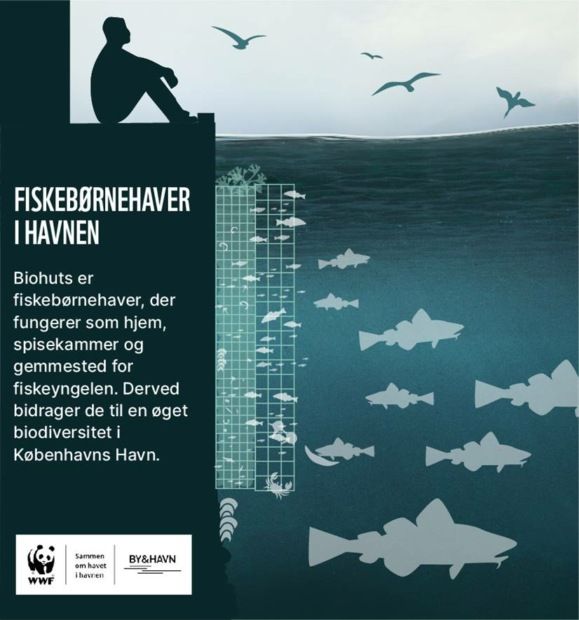News
Nothing fishy about it: Copenhagen chasing world Biohut record
This article is more than 4 years old.
Following a successful introduction to fish hotels, the capital is looking to become the world leader in regards to Biohut installations

A haven for small fish (photo: By & Havn)
A few months ago, Copenhagen teamed up with the World Wildlife Foundation (WWF) to establish 50 fish hotels (so called Biohuts) in the harbour to protect fish and promote biodiversity in the city’s waterfront area.
The installation – the largest in northern Europe – has been deemed a huge success and now the capital is gunning for the unofficial world record by installing another 50 Biohuts.
Sightseeing firm Stromma has agreed to help fund the installation of 20 Biohuts – two will be set up already in the coming weeks at Frederiksholms Kanal and Ofelia Plads.
City developer By & Havn is on the lookout for co-operation partners to help fund the establishment of the remaining Biohuts, and 25 have been put up for sale for prospective partners to help contribute.
READ ALSO: Fish kindergartens in the Port of Copenhagen
Instagram competition
The final five Biohuts will be allocated an Instagram photo competition where ordinary citizens can participate and potentially have their names inscribed on a Biohut and become part of harbour history … at least for the decade the fish hotels have as a lifespan.
You take part by putting up a picture on Instagram using the hashtag #SammenOmHavetiHavnen. The theme of the photo should reflect that we all stand together for the sea in the harbour.
The competition runs from September 1-14 and the winners will be announced here.
“Copenhagen has one of the cleanest harbours in the world, helped on by, among other things, By & Havn cleaning it several times weekly before the city awakes,” said Anne Skovbro, the head of By & Havn.
“We want to further improve life under the water and ensure that the harbour’s ecosystem is functional.”
Made of a steel cage, which contains a small lattice box filled with empty oyster shells where algae and small organisms can grow, the Biohuts allow for a space where fish can both eat and be safe from larger fish.
Check out the video below for more of an insight.











































